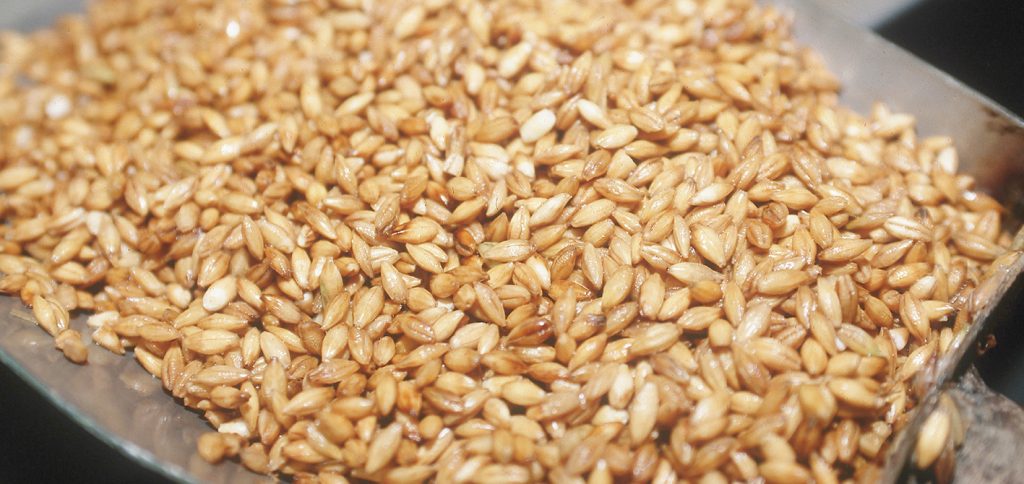Malt factories bank on flavor diversity

More and more brewers are demanding distinctive specialty roasts from their malt producers to give their beer an unmistakable flavor kick. Major producers presented these new malt trends at drinktec and showed how they are responding to the craft beer scene.
The international craft beer movement is making its mark in malt production too. Barely a day seems to go by without a new brewery opening, promising a creative new twist. Consumers are becoming more discerning and keep demanding new creations from their favorite breweries. To meet this demand and continue producing specialty beers, brewers rely on certain special ingredients. The hop industry has certainly long understood this, and it proudly touts its variety of flavors on offer. But now malt producers have caught on as well and are increasingly expanding their selection of high-quality roasted malts.
Flavor diversity is the trump card for malt producers
The Weyermann factory in Bamberg, Germany, is a market leader in specialty malts and a model example of this trend. The company’s portfolio includes more than 85 varieties, including sour malt, spelt malt and melanoidin malt. It now exports to roughly 135 countries. Managing director Sabine Weyermann knows that brewers are always looking for adventurous new flavors and is adjusting to the changing demand. The Weyermann recipe for success: “Our strength is that we are in constant communication with the brewers and can respond to their wishes personally.” At drinktec, the malt factory’s team presented a completely new variety called Eraclea, made with barley from the Italian coastal region of Veneto. The malt gives the end product a light body and color accompanied by a maritime flavor.
Another business producing specialist varieties is BestMalz from the small German town of Kreimbach-Kaulbach in Rhineland-Palatinate. The long-established company has a portfolio of around 40 different base, caramel, roasted and functional malts. This includes two “craft malts”: “Best Red X,” which BestMalz recommends for red-tinted beers such as red ales, amber ales and altbiers, and “Best Special X,” a short-roasted dark caramel malt with chocolate flavors and a color especially suited to porters, dunkel beers and stouts. BestMalz currently delivers to more than 75 countries and has become a port of call for craft brewers all around the world.
Special malt for craft beer
Another drinktec exhibitor, the Swedish-Finnish malt producer “Viking Malt,” tells a similar story. The Scandinavian company works mainly with cereals from northern Europe. With demand for specialty malts growing in the craft beer scene, Viking now has more than six malthouses in several countries, including Sweden, Denmark, Finland, Lithuania and two sites in Poland. The five special varieties in its “Brewer’s Organic” range also signal Viking Malt’s attention to the organic malt trend.
Smaller quantities – malt producers cater to microbreweries and amateur brewers
Weyermann, BestMalz and Viking Malt, along with other drinktec exhibitors like The Swaen from the Netherlands, Obolon from Ukraine, Belgium’s Boortmalt and the British Bairds Malt, are united by more than just their special diversity of flavors. They are also responding professionally to the new requirements of the craft beer industry. This means offering smaller quantities, as most of the new breweries are still relatively scaled down and do not need deliveries by the ton. These smaller quantities also serve the brewing giants, who use them for testing purposes, professional microbrewers and even amateur brewers with miniature brew kettles.
More on “artisan” beer in our video “Craft Beer – More than just beer”
Was there not enough time during drinktec for all the interesting things you wanted to see? We have put together the most interesting information in a playlist.
Show all drinktec 2017 videos!
